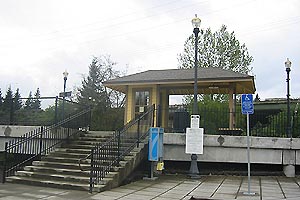by jtr1962
goodnightjohnwayne wrote: So you're justifying the Oregon Talgo order on the basis as a "valid social function?" That's makes complete sense since it fails every objective test, given the horrifically high costs per seat and the highly dubious, non-competitive nature of the contract!I'm not saying the Talgo train is the best solution, merely that the concept of running a train here serves a valid function. Given the low speeds of the line in question, and lack of curvature, standard off-the-shelf conventional equipment likely could have been used to lower costs.
Oh, and "marginal driver" means exactly that - a driver who technically may have passed licensing requirements ( which incidentally are ridiculously lax here in the states compared to elsewhere ), but who nonetheless cannot competently operate a motor vehicle. I'm sure there's more than a few in Oregon who qualify. In New York City such drivers seem to be a majority.
I can't think of very many people who would refer to the MTA as an unqualified "success" on any level.No, the MTA is virtually synonymous with waste, corruption, and graft, but the concept of using public transit in NYC is successful. If only we could get someone else to run it....


